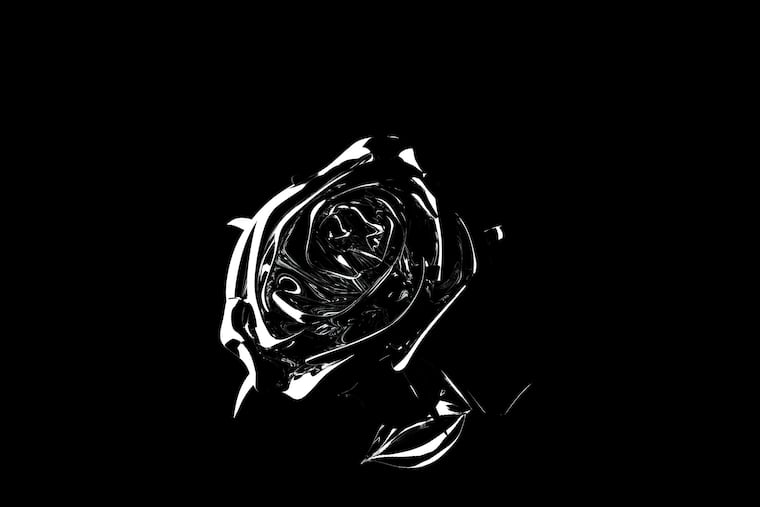Listen to Pop Smoke’s new album to hear what his death cut short | Review
New albums from My Morning Jacket and Willie Nelson are two more of July's big releases.

Pop Smoke
Shoot for the Stars, Aim for the Moon
(Republic ***)
Shoot for the Stars, Aim for the Moon is in tragic company. It’s the fourth posthumously released rap album to enter the Billboard pop chart at No. 1, joining releases by the Notorious B.I.G., Tupac Shakur, and XXXTentacion.
Shoot for the Stars is the work of the Brooklyn rapper Pop Smoke, who was shot and killed during a robbery at a house he was renting in Los Angeles in February. (On Monday, the Los Angeles County District Attorney’s Office charged four people with murder in the case.)
The first thing you notice about Pop Smoke is his gravelly rumble of a voice. He conveys a sense of weary gravitas, a feeling that, though only 20, he had encountered a lifetime’s worth of trouble. Had he? Who knows, but he sounds like he could be twice his age.
His rugged flow connects back to Biggie, a legendary King of New York. And that’s a title many felt the charismatic Smoke was poised to claim on the basis of two Meet The Woo EPs that preceded his debut album.
Among those who pegged him for greatness was 50 Cent, who mentored the young rapper — 50 appears on Shoot for the Stars’ “The Woo”(Smoke’s favorite word), and 50′s “Many Men” is sampled here on “Got It on Me.”
Shoot captures Pop Smoke’s charisma and fluid, versatile approach. His timing was impeccable. He knew all he needed to do was growl “Grrrr …” to drive fans wild.
» READ MORE: Now’s the time to appreciate Philly soul great Thom Bell, one of ‘The Mighty Three’ alongside Gamble and Huff
The album falters is in its posthumous assemblage. The 19 tracks on the bonus edition thankfully include “Dior,” the 2019 hit that celebrates a designer shopping spree and has become an unlikely Black Lives Matter protest anthem.
But the album is also overloaded with features: three from Migos’ Quavo, plus Future, Swae Lee, Lil Baby, and DaBaby. It’s understandable why they wanted to jump on what was destined to be the hot hip-hop album of the summer. But turning Shoot into an all-star entertainment event dilutes its impact.
— Dan DeLuca
My Morning Jacket
The Waterfall II
(ATO, ***)
My Morning Jacket’s recording sessions for 2015′s The Waterfall produced a flood of material, enough that the band toyed with releasing a triple album. Instead, after staying out on the road, they moved on. Leader Jim James released a handful of solo albums, and the rest of the band stayed busy — backing up Philly’s Tim Showalter for Strand of Oaks’ Eraserland, among other things.
Now, five years downstream, we get The Waterfall II, a gentler and less conflicted partner. The lyrics for the otherwise excellent first Waterfall — with its keening anthems and extended guitar jams — had traces of bitterness and cynicism. The Waterfall II, on the other hand, is full of airy, unhurried songs about finding hope after being disillusioned.
» READ MORE: The new Margo Price album will win you over with its ’70s rock groove
Aside from the heavy stomp of “Wasted” and the funky groove of “Magic Bullet,” the tone is comparatively subdued, but varied, from the Beach Boys orchestration of “Still Thinkin'” to the Bakersfield twang of “Climbing the Ladder” to the mountain folk of “Run It.” Often, James lifts a melody toward heaven with his beautiful falsetto.
This album may have been in the can for five years, but it sounds fully realized and even timely. The ethereal “Spinning My Wheels,” an ode to stasis, belongs on any Pandemix 2020 playlist.
— Steve Klinge
Willie Nelson
First Rose of Spring
The 70th studio album from 87-year-old Willie Nelson has more to do with fall and winter than it does with spring, metaphorically speaking. There’s a preoccupation here with the passage of time and the looming sense that the end is near.
It’s a sublime and moving set that continues the first-rate work the legend has been doing in recent years.
To be sure, there are diversions, including the carefree swing of “Just Bummin’ Around” and a vigorous rip through the Johnny Paycheck anthem “I’m the Only Hell My Momma Ever Raised.” But the album takes its main cue from the leadoff title song, a tearjerker that unfolds at an unhurried pace.
Numbers by Toby Keith (“Don’t Let the Old Man In”) and Chris Stapleton (“Our Song”) fit right in to the theme and mood, as do two solid Nelson originals written with producer Buddy Cannon (“Blue Star” and “Love Just Laughed”).
The spare accompaniment — accented by Mickey Raphael’s moaning harmonica and also featuring some short, eloquent runs by Nelson on Trigger, his battered guitar — matches the singer’s dry and understated delivery, although his voice is finally betraying some signs of fraying.
Nelson concludes with “Yesterday When I Was Young,” the Charles Aznavour standard about reckoning with the wages of a misspent and profligate youth. If he harbors any regrets from his own long and storied life, it’s clear from his performance that they have only served to enrich his artistry.
— Nick Cristiano